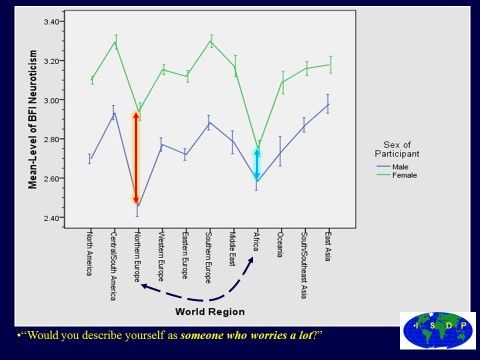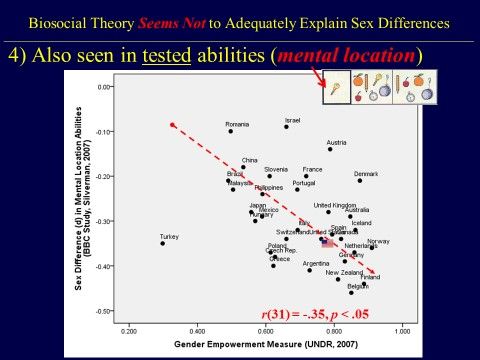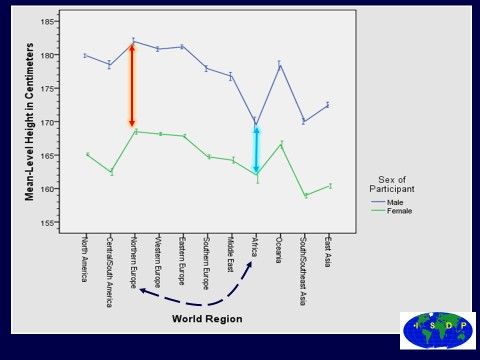
вторник, 21 апреля 2015
our subject isn't cool, but he fakes it anyway

our subject isn't cool, but he fakes it anyway
Vani Hari, AKA the Food Babe, has amassed a loyal following in her Food Babe Army. The recent subject of profiles and interviews in the New York Times, the New York Post and New York Magazine, Hari implores her soldiers to petition food companies to change their formulas. She's also written a bestselling book telling you that you can change your life in 21 days by "breaking free of the hidden toxins in your life." She and her army are out to change the world.
She's also utterly full of shit.
I am an analytical chemist with a background in forensics and toxicology. Before working full-time as a science writer and public speaker, I worked as a chemistry professor, a toxicology chemist, and in research analyzing pesticides for safety. I now run my own blog, Science Babe, dedicated to debunking pseudoscience that tends to proliferate in the blogosphere. Reading Hari's site, it's rare to come across a single scientific fact. Between her egregious abuse of the word "toxin" anytime there's a chemical she can't pronounce and asserting that everyone who disagrees with her is a paid shill, it's hard to pinpoint her biggest sin.
Hari's superhero origin story is that she came down with appendicitis and didn't accept the explanation that appendicitis just happens sometimes. So she quit her job as a consultant, attended Google University and transformed herself into an uncredentialed expert in everything she admittedly can't pronounce. Slap the catchy moniker "Food Babe" on top, throw in a couple of trend stories and some appearances on the Dr. Oz show, and we have the new organic media darling.
But reader beware. Here are some reasons why she's the worst assault on science on the internet.
читать дальше
She's also utterly full of shit.
I am an analytical chemist with a background in forensics and toxicology. Before working full-time as a science writer and public speaker, I worked as a chemistry professor, a toxicology chemist, and in research analyzing pesticides for safety. I now run my own blog, Science Babe, dedicated to debunking pseudoscience that tends to proliferate in the blogosphere. Reading Hari's site, it's rare to come across a single scientific fact. Between her egregious abuse of the word "toxin" anytime there's a chemical she can't pronounce and asserting that everyone who disagrees with her is a paid shill, it's hard to pinpoint her biggest sin.
Hari's superhero origin story is that she came down with appendicitis and didn't accept the explanation that appendicitis just happens sometimes. So she quit her job as a consultant, attended Google University and transformed herself into an uncredentialed expert in everything she admittedly can't pronounce. Slap the catchy moniker "Food Babe" on top, throw in a couple of trend stories and some appearances on the Dr. Oz show, and we have the new organic media darling.
But reader beware. Here are some reasons why she's the worst assault on science on the internet.
читать дальше
понедельник, 20 апреля 2015
our subject isn't cool, but he fakes it anyway
our subject isn't cool, but he fakes it anyway
our subject isn't cool, but he fakes it anyway



воскресенье, 19 апреля 2015
our subject isn't cool, but he fakes it anyway

our subject isn't cool, but he fakes it anyway

our subject isn't cool, but he fakes it anyway
ask.fm/clnsan/answer/128289383086 Вопросник yun
Тоже вопрос по тексту про депрессию: немного напугал, так как я считала описанные симптомы неотъемлемым этапом взросления и усталости. Как понять, что ты не в рамках нормы и что говорить специалисту? Просто прийти и сказать: у меня постоянный упадок сил и хандра, которая почему-то не проходит? Да, именно так и говорить, ровно как вы написали.
.
Может и хорошо, что вас этот текст напугал. Я вот неизменно огорчаюсь, когда встречаюсь с картинами мира, где постоянная усталость, отвращение к жизни, отсутствие целей, недосып и все прочие вещи - абсолютная проза жизни, с которой человек даже не пытается бороться. Не должно это быть нормой! Это не психическое здоровье! Это может быть небольшим жизненным этапом, кризисом, или в тяжелых жизненных ситуациях, но из таких ситуаций нужно усиленно выгребать. Здоровье - это полноценная, активная жизнь, удовольствие от жизни, значимые и интересные цели, богатая палитра эмоций и переживаний, ощущение своей силы и значимости. И это не призрак никакой, это состояние, в котором любой физически здоровый человек способен прийти.
.
А с рамки нормы можно очень условные провести по времени. То есть если у вас плохое настроение/упадок сил/усталость длится недолго, дни-недели, и возникает нечасто, а все остальное время вы свежи, бодры и полны сил, то это здоровье. Здоровье подразумевает всю палитру эмоций, и усталости там тоже есть место.
Но если упадок сил и хандра постоянные, длятся недели, месяцы или даже годы, если есть постоянное ощущение бессмысленности, скуки, лени, если эмоциональная жизнь бедная, а значимых и интересных целей в жизни нет - это очень, очень серьезный повод обратиться к терапевту!
Тоже вопрос по тексту про депрессию: немного напугал, так как я считала описанные симптомы неотъемлемым этапом взросления и усталости. Как понять, что ты не в рамках нормы и что говорить специалисту? Просто прийти и сказать: у меня постоянный упадок сил и хандра, которая почему-то не проходит? Да, именно так и говорить, ровно как вы написали.
.
Может и хорошо, что вас этот текст напугал. Я вот неизменно огорчаюсь, когда встречаюсь с картинами мира, где постоянная усталость, отвращение к жизни, отсутствие целей, недосып и все прочие вещи - абсолютная проза жизни, с которой человек даже не пытается бороться. Не должно это быть нормой! Это не психическое здоровье! Это может быть небольшим жизненным этапом, кризисом, или в тяжелых жизненных ситуациях, но из таких ситуаций нужно усиленно выгребать. Здоровье - это полноценная, активная жизнь, удовольствие от жизни, значимые и интересные цели, богатая палитра эмоций и переживаний, ощущение своей силы и значимости. И это не призрак никакой, это состояние, в котором любой физически здоровый человек способен прийти.
.
А с рамки нормы можно очень условные провести по времени. То есть если у вас плохое настроение/упадок сил/усталость длится недолго, дни-недели, и возникает нечасто, а все остальное время вы свежи, бодры и полны сил, то это здоровье. Здоровье подразумевает всю палитру эмоций, и усталости там тоже есть место.
Но если упадок сил и хандра постоянные, длятся недели, месяцы или даже годы, если есть постоянное ощущение бессмысленности, скуки, лени, если эмоциональная жизнь бедная, а значимых и интересных целей в жизни нет - это очень, очень серьезный повод обратиться к терапевту!
our subject isn't cool, but he fakes it anyway
our subject isn't cool, but he fakes it anyway
Один из любимых комплиментов - что у меня красивый голос.
our subject isn't cool, but he fakes it anyway
Александр Марков о том, почему люди с большим трудом постигают суть теории эволюции.
суббота, 18 апреля 2015
our subject isn't cool, but he fakes it anyway
Марвел и Нетфликс сделали классный сериал про слепого супергероя Сорвиголову.
И Чарли Кокс офигенно его играет. Рекомменд.
PS Сериал, как и OITNB, выходит целым сезоном.
***


Matt Murdock, Sad, Holding a balloon.
пятница, 17 апреля 2015
our subject isn't cool, but he fakes it anyway
I have no guilt to haunt me
I feel no wrong intent
I feel no wrong intent
среда, 15 апреля 2015
our subject isn't cool, but he fakes it anyway
our subject isn't cool, but he fakes it anyway
Интересная статья о том, почему Стив Роджерс - не тот, кем кажется.
At this point I don’t think Steven needs an introduction — or wouldn’t, were it not for the fact that he’s now Doctor Steven Attewell, and we all know how that title can change a man. — SEK
www.lawyersgunsmoneyblog.com/2013/10/steven-att...
A while ago, I came across an argument on Tumblr over whether “modern approaches to writing steve rogers are politically correct revisionist history bc people write steve now as being super accepting of all races and sexualities and genders etc.”My initial thought was: ok, I have to chime in on this. There is a mistaken belief that cultural attitudes in the past were monolithic, that everyone and everywhere was “of their time.” This is not true; even in the past, there were people and places who saw past conventional wisdom and social pressure and looked to a better future.
But the real reason I had to chime in was that Steve Rogers is my favorite superhero. Why? Because unlike other patriotism-themed characters, Steve Rogers doesn’t represent a genericized America but rather a very specific time and place – 1930’s New York City. We know he was born July 4, 1920 (not kidding about the 4th of July) to a working-class family of Irish Catholic immigrants who lived in New York’s Lower East Side.[1] This biographical detail has political meaning: given the era he was born in and his class and religious/ethnic background, there is no way in hell Steve Rogers didn’t grow up as a Democrat, and a New Deal Democrat at that, complete with a picture of FDR on the wall.
Steve Rogers grew up poor in the Great Depression, the son of a single mother who insisted he stayed in school despite the trend of the time (his father died when he was a child; in some versions, his father is a brave WWI veteran, in others an alcoholic, either or both of which would be appropriate given what happened to WWI veterans in the Great Depression) and then orphaned in his late teens when his mother died of TB.[2] And he came of age in New York City at a time when the New Deal was in full swing, Fiorello LaGuardia was mayor, the American Labor Party was a major force in city politics, labor unions were on the move, the Abraham Lincoln Brigade was organizing to fight fascism in Spain in the name of the Popular Front, and a militant anti-racist movement was growing that equated segregation at home with Nazism abroad that will eventually feed into the “Double V” campaign.
Then he became a fine arts student.читать дальше
Steven Attewell: Steve Rogers Isn’t Just Any Hero


At this point I don’t think Steven needs an introduction — or wouldn’t, were it not for the fact that he’s now Doctor Steven Attewell, and we all know how that title can change a man. — SEK
www.lawyersgunsmoneyblog.com/2013/10/steven-att...
A while ago, I came across an argument on Tumblr over whether “modern approaches to writing steve rogers are politically correct revisionist history bc people write steve now as being super accepting of all races and sexualities and genders etc.”My initial thought was: ok, I have to chime in on this. There is a mistaken belief that cultural attitudes in the past were monolithic, that everyone and everywhere was “of their time.” This is not true; even in the past, there were people and places who saw past conventional wisdom and social pressure and looked to a better future.
But the real reason I had to chime in was that Steve Rogers is my favorite superhero. Why? Because unlike other patriotism-themed characters, Steve Rogers doesn’t represent a genericized America but rather a very specific time and place – 1930’s New York City. We know he was born July 4, 1920 (not kidding about the 4th of July) to a working-class family of Irish Catholic immigrants who lived in New York’s Lower East Side.[1] This biographical detail has political meaning: given the era he was born in and his class and religious/ethnic background, there is no way in hell Steve Rogers didn’t grow up as a Democrat, and a New Deal Democrat at that, complete with a picture of FDR on the wall.
Steve Rogers grew up poor in the Great Depression, the son of a single mother who insisted he stayed in school despite the trend of the time (his father died when he was a child; in some versions, his father is a brave WWI veteran, in others an alcoholic, either or both of which would be appropriate given what happened to WWI veterans in the Great Depression) and then orphaned in his late teens when his mother died of TB.[2] And he came of age in New York City at a time when the New Deal was in full swing, Fiorello LaGuardia was mayor, the American Labor Party was a major force in city politics, labor unions were on the move, the Abraham Lincoln Brigade was organizing to fight fascism in Spain in the name of the Popular Front, and a militant anti-racist movement was growing that equated segregation at home with Nazism abroad that will eventually feed into the “Double V” campaign.
Then he became a fine arts student.читать дальше
our subject isn't cool, but he fakes it anyway
Oral Contraceptive Pill Could Be Altering The Physical Structure Of Your Brain
The pill is a very popular contraceptive choice for women, with around 100 million individuals worldwide currently using it. There is no doubt that it has helped revolutionize contraception, and most users report satisfaction, but it is also apparent that it can cause undesirable side effects in women. For example, many studies have demonstrated that its use is associated with metabolic and emotional effects, and one study even found it could influence a woman’s choice of partner.
Now, a new investigation is adding to the growing body of evidence that the pill may be associated with neurological alterations, with the discovery that oral contraceptives are linked to thinning in two different regions of the brain, possibly altering their function.
For the study, scientists at the University of California, Los Angeles (UCLA), investigated 90 women, 44 of whom were using oral contraceptives, whilst the others were naturally-cycling. They were interested in comparing the thickness and volumes of different brain regions that participate in two networks, the salience network and the default mode network. The former functions to sort through all the internal and external stimuli we are presented with, like pain or a distant noise, in order to identify the most relevant for guiding behavior. The latter is most active when we are at rest, for example during daydreaming or thinking about the future.
As described in Human Brain Mapping, the researchers found that two particular regions, the lateral orbitofrontal cortex and the posterior cingulate cortex, tended to be thinner in those who were taking oral contraceptive pills. The lateral orbitofrontal cortex helps us regulate emotions and is thought to allow us to adapt our behavior in response to rewards or adversities, while the posterior cingulate cortex helps us evaluate our internal states. The researchers told Huffington Post that changes to the former could help to explain why some women experience negative emotional side effects, such as anxiety and depression, when they commence the pill.
Although the study cannot prove whether oral contraceptives are causing these alterations in brain morphology, or if they are merely indirectly linked to them, the findings are interesting because they contradict an earlier study. Back in 2010, scientists documented that women taking hormonal contraceptives had numerous cortical regions that were larger than those in women not using contraceptives. Once again, some of these regions were involved in regulating emotions.
As Medical News Today points out, given that sex hormones, like estrogen, strongly influence the brain and nervous system, it does make sense that hormonal contraceptives could be exerting side effects on these parts of the body. That being said, it is unclear at this stage as to whether the alterations observed so far are permanent, or disappear when a woman goes off the pill. Furthermore, we don’t know if they are actually causing changes in behavior or cognition, which is why further studies are needed.
www.iflscience.com/health-and-medicine/oral-con...
вторник, 14 апреля 2015
our subject isn't cool, but he fakes it anyway
понедельник, 13 апреля 2015
our subject isn't cool, but he fakes it anyway
THE JOURNEY
Above the mountains
the geese turn into
the light again
Painting their
black silhouettes
on an open sky.
Sometimes everything
has to be
inscribed across
the heavens
so you can find
the one line
already written
inside you.
Sometimes it takes
a great sky
to find that
first, bright
and indescribable
wedge of freedom
in your own heart.
Sometimes with
the bones of the black
sticks left when the fire
has gone out
someone has written
something new
in the ashes of your life.
You are not leaving.
Even as the light fades quickly now,
you are arriving.
Above the mountains
the geese turn into
the light again
Painting their
black silhouettes
on an open sky.
Sometimes everything
has to be
inscribed across
the heavens
so you can find
the one line
already written
inside you.
Sometimes it takes
a great sky
to find that
first, bright
and indescribable
wedge of freedom
in your own heart.
Sometimes with
the bones of the black
sticks left when the fire
has gone out
someone has written
something new
in the ashes of your life.
You are not leaving.
Even as the light fades quickly now,
you are arriving.
our subject isn't cool, but he fakes it anyway
Are Women More Emotional Than Men?
Women’s negative emotionality as experienced around the world
Women’s negative emotionality as experienced around the world
Post published by David P Schmitt Ph.D. on Apr 10, 2015 in Sexual Personalities
Are women more emotional than men? Maybe. Men could be described as more emotional than women, too. It depends on the type of emotion, how it is measured, where it is expressed, and lots of other factors. It is also important when answering that type of question not to dichotomize sex differences as necessarily being either “entirely absent” (i.e., gender blank slate-ism) or so large that men and women “can’t relate to one another” (i.e., the old Mars versus Venus claptrap). Most psychological sex differences fall somewhere in the middle (Petersen & Hyde, 2010).
From an evolutionary perspective, it is likely there are some sex differences in emotion. Indeed, the odds of men and women having evolved the exact same emotional psychology are basically zero. It would be nothing short of a Darwinian miracle for men and women to have evolved precisely identical emotional designs. The forces of selection acting on humans would have had to eliminate all previous sex differences in emotionality stemming from our lineage as mammals and primates, actively select against any and all sex-specific emotional adaptations developing during our hundreds of millennia as hunter-gatherers, and maintain a perfectly androgynous psychology of emotion in men and women post-Pleistocene epoch (Buss & Schmitt, 2011). For one to expect absolutely no sex differences in human emotion, one would have to believe in a god/godess-like creature, Androgyna, having actively intervened throughout all of human history to make sure men and women reproduce in ways that maintain precisely the same emotional psychology. As Vandermassen (2011) has noted, “that human males and females should have evolved to be psychologically identical, for example, is a theoretical impossibility, and, indeed, turns out to be untrue” (p. 733).
Still, any particular scientific claim about men and women being emotionally different needs to be evaluated empirically. And finding sex differences in emotionality would not mean the differences are evolved, even if the sex differences have neurological substrates (gender role socialization may change the brains of boys and girls). The evolved question requires a lot more evidence (see Schmitt & Pilcher, 2004).
сайенс
воскресенье, 12 апреля 2015
our subject isn't cool, but he fakes it anyway






































